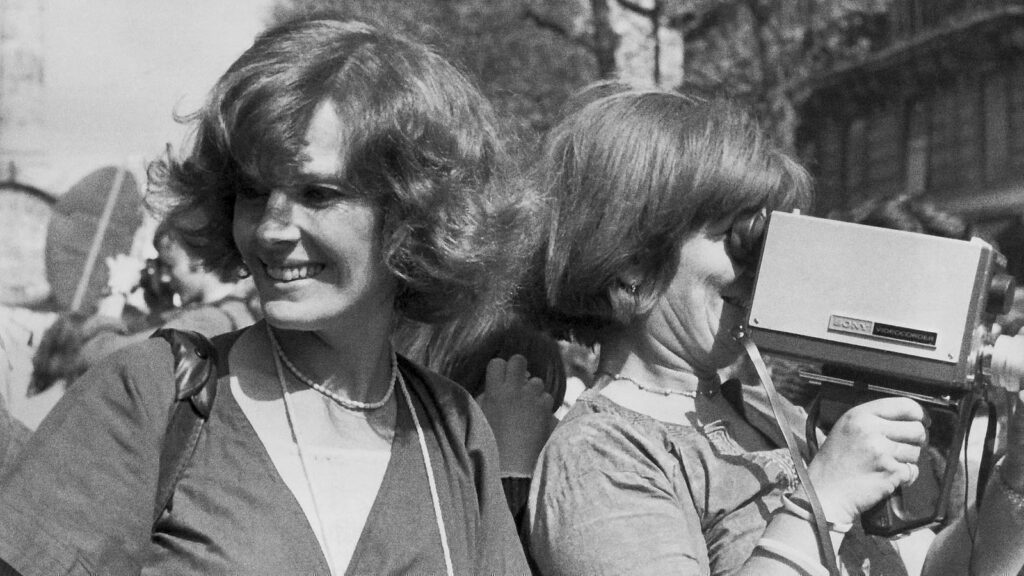Actresses, directors, activists. Women in film at the festival

This year’s Il Cinema Ritrovato programme once again recognises important female figures in the history and making of cinema: important for their luminosity, talent, freedom, charisma, influence, creativity, political consciousness; masters of their artwork and themselves.
The festival has plenty of these names in the programme. Here, we present five indispensable protagonists of the 38th edition of Il Cinema Ritrovato.
Diving right in with the diva herself, Marlene Dietrich: celebrated, debated, photographed and, of course, shown on film to such an extent over the last century that, for many European and North American audiences, her first name suffices to introduce her. Notwithstanding all the angles history and cameras have taken on her, a thread runs through her work and life: Marlene Dietrich did not shy away from disrupting film and society – from challenging norms to her show-stopping presence on-screen that interrupts classical narratives to focus all eyes on her and her staging. Precisely these diverse challenges with which Marlene has confronted her audiences have let her be perceived as a role model to this day by different communities: Marlene was provocative as a working mother, as a bisexual star who practiced cross-dressing, as a fashion and style icon who created her own image, as an actress who intervened politically and took a clear stand for freedom, tolerance and democracy. In a selection of major films, this retrospective therefore explores Marlene as a disruptive force in cinema history.
Discover the selection of films dedicated to Dietrich
Moving towards France in order to explore the world of Delphine Seyrig – actor, director, activist. Cult actress stars in Jeanne Dielman, 23, quai du Commerce, 1080 Bruxelles, which was ranked #1 on Sight & Sound’s list of the 100 greatest films of all time in 2022.
Work your way back, rewinding from Sois belle et tais-toi!, for the career of Delphine Seyrig is inextricably linked to her commitment to the feminist cause. An icon for cinephiles and feminists alike, she is more relevant today than ever. During the festival we will explore her work of rupture and social deconstruction in the company of activist friends, Chantal Akerman, Liliane de Kermadec and Babette Mangolte. Delphine forever, but especially now. “One thing I know is that in every role I play, I feel as if I have made myself less than I am. We need to write roles for women like those that were always written for men. This means roles to match Hamlet, or Macbeth; female characters who think, female characters who take action and who make you want to get involved in things and have an adventurous life.” (Delphine Seyrig).
Five films to (re)discover Seyrig
Let’s shake our gaze and get to know the three female filmmakers in this year’s Cinemalibero, who have used their art form as a tool of protest. Women’s subjugation within patriarchal society, both in a literal sense and as an allegory of a totalitarian regime; a backward journey to process family memories that become a collective political narrative; the condemnation of colonial repression and the celebration of culture and artistic expression an element of resistance and liberation – are among the themes that run through the works presented this year.
We start with two cornerstones of fem- inist cinema at the wane of the 1970s: La Nouba des femmes du Mont Chenoua and Khak-e Sar bé Mohr. Assia Djebar in Algeria and Marva Nabili in Iran – through her film will be completed in the US – both succeed in creating a feminine cinematic space through their own distinctive formal research. While Djebar draws on the classical Arab-Andalusian musical tradition to narrate the Algerian women’s war of liberation, Nabili recognises Brechtian theory, poetry and the Persian min- iature tradition as the foundations of her cinema. Her ‘Jeanne Dielman’, Roo-Bekheir, will end up paying for her conscious- ness-raising and rejection of marriage with an exorcism.
Last but not least, the bright and beautiful ‘Carnival Trilogy’ by another female pioneer, Sarah Maldoror, made in honour of her friend Amílcar Cabral to celebrate Guinean and Cape Verdean cultures as an element of resistance and liberation from colonial domination.


